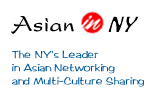Resistance to and accommodation of the Mongols had mixed effects on the national developments of some of the “host” nations. European kingdoms and principalities formed alliances to do battle, albeit unsuccessfully, against the Mongol armies. Europeans even combined with the hated Muslims in Egypt and Palestine to oppose the common Mongol enemy. Although the Mongol invasion of Japan was not successful, it contributed to the eventual downfall of Japan’s ruling faction. The conquering Mongols brought an infusion of new ideas and unity to China but were eventually absorbed and lost their ability to rule over a people hundreds of times more numerous than themselves.
But Mongol influence did not end with the termination of military conquests or absorption. Their presence was institutionalized in many of the lands they conquered through adoption of Mongol military tactics, administrative forms, and commercial enterprises. The historical developments of such disparate nations as Russia, China, and Iran were directly affected by the Mongols. Wherever they settled outside their homeland, the Mongols brought about cultural change and institutional improvements. Although there never was a “Pax Mongolica,” the spread of the Mongol polity across Eurasia resulted in a large measure of cultural exchange. Chinese scribes and artists served the court of the Ilkhans in Iran, Italian merchants served the great khans in Karakorum and Daidu (as Beijing was then known), papal envoys recorded events in the courts of the great khans, Mongol princes were dispatched to all points of the great Mongol empire to observe and be observed, and the Golden Horde and their Tatar descendants left a lasting mark on Moscovy through administrative developments and intermarriage. Although eventually subsumed as part of the Chinese empire, the Mongols were quick to seek independence when that empire disintegrated in 1911.
The Mongol character has been greatly influenced by the extremes of Mongolia’s geography, comprising huge rolling plateaus, rugged mountain ranges, and areas susceptible to earthquakes. On the one hand Mongolia has Hovsgol Nuur–Asia’s second largest freshwater lake–and river systems that drain toward the Arctic and Pacific oceans and into Central Asia, and on the other, the Gobi, a vast arid rangeland within which are even less hospitable desert areas. The climate is mostly cold and dry with long frigid winters and short hot summers. Minimal precipitation, temperatures that freeze the nation’s rivers and freshwater lakes for long periods of the year, and severe blizzards and dust storms leave only around 1 percent of the land arable and make human and livestock existence fragile at best.
Such an inhospitable land not unexpectedly is home to a relatively small, widely dispersed population. Of the 4 million plus Mongols–only a fourfold increase over the population of the era of Chinggis Khan–just slightly more than 2 million people live in the modern Mongolian People’s Republic (the rest are minority peoples in China and the Soviet Union). Except for a concentration of 500,000 people in Ulaanbaatar, the capital, the rest of the population is sparsely distributed: another quarter of the population resides in small urban areas and the remaining approximately 49 percent live in the vast countryside. The population, however, is young and growing rapidly as government incentives encourage large families to offset labor shortages. Ninety percent of the population is composed of ethnic Mongols, making the nation extremely homogeneous; Turkic peoples, such as Tuvins and Kazakhs, Chinese, Russians, and other minorities make up the remainder.
Nomadic peoples of uncertain origins are recorded as living in what is now the Mongolian People’s Republic in the third century B.C., and archaeological evidence takes human habitation in the Gobi back a hundred centuries or earlier. Warfare was a way of life, against other





